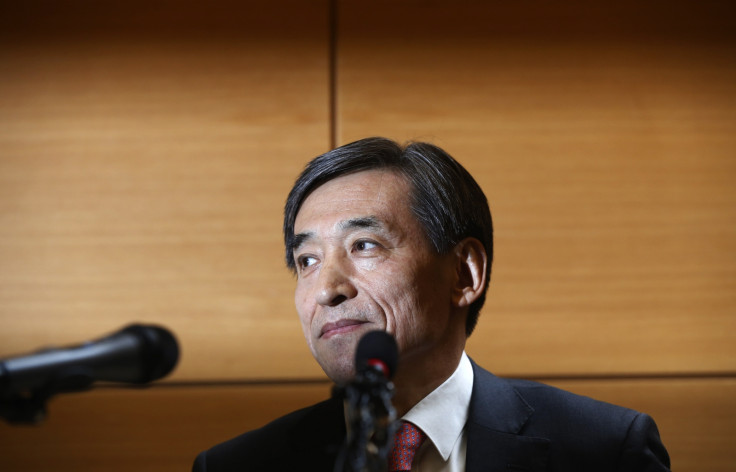South Korea Central Bank Cuts Interest Rate to Boost Growth

South Korea's central bank has cut its benchmark interest rate for the first time since May 2013, supporting the government's measures to boost economic growth.
The Bank of Korea (BOK) said it lowered the seven-day repurchase rate to 2.25% from 2.5%.
The decision, predicted by most economists, has been welcomed by the country's finance ministry, saying it would add synergy to the government's strategy to boost growth.
BOK governor Lee Ju-yeol noted that the central bank's decision was aimed at reviving sentiment, which was hurt by the April Sewol ferry accident. Lee added that lowering the policy rate by 25 basis points could lift growth by 0.05-0.10 percentage points.
"The committee judges that improvements in domestic demand, which had contracted due mainly to the impacts of the Sewol ferry accident, have been insufficient, and that the consumption and investment sentiments of economic agents also continue to show sluggishness," the central bank said in a statement.
The BOK added that it will "closely monitor external risk factors such as shifts in major countries' monetary policies, changes in economic agents' sentiment and movements of future economic indicators including the household debt trend, while observing the effects of this month's base rate cut and the government's economic policies."
Following the decision, the central bank would adopt a wait-and-see approach going forward, as the rate is expected to have some side effects, according to economists.
"Governor Lee remains vigilant to the side effect of rate cut which will likely increase household debts. We think that the BOK will maintain the policy rate at 2.25% in September because the central bank would need to assess the impact of today's action," said Louis Lam, economist at ANZ Bank.
"We view that the possibility for another cut in the following meeting becomes low unless the overall sentiment deteriorates further."
Lam added that the central bank may explore other forms of monetary easing including some targeted loan programmes to accommodate the stimulus package announced earlier by the government.
Following the country's weak economic growth for the second quarter, the government announced a stimulus package to lift growth. The stimulus will include expanding fiscal spending by 11.7tn won ($11.4bn, £6.7bn, €8.5bn) and an extra 29tn in policy financing.
In addition, the BOK is expected to revise its inflation target, which is currently 2.5-3.5%.
© Copyright IBTimes 2025. All rights reserved.






















